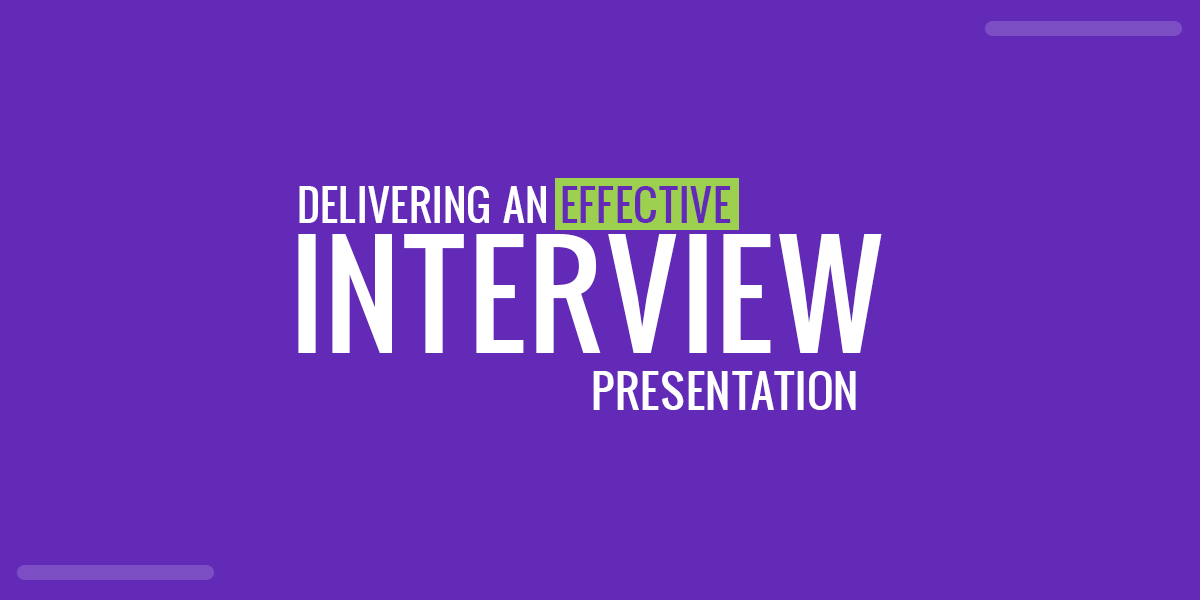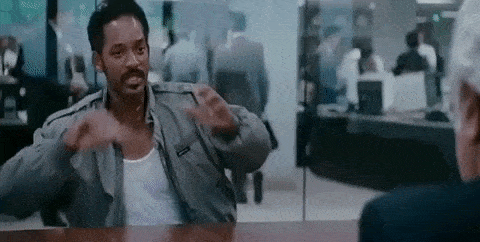Tips on How to Deliver an Effective Interview Presentation
Last updated on May 27th, 2024

Interviewing for a job is always nerve-wracking, whether you are just starting to climb the career ladder or have been working for years. Sometimes, this process goes beyond the usual one-on-one interview. Interview presentations are often required for positions that are involved in communications, sales, and other client-facing jobs.
Interview presentations usually cover subjects that are relevant to the position you are applying for, or of particular interest to your employer. Interview presentations include topics like innovations and trends in your field, your background, or a sales pitch to evaluate your persuasion abilities.
Nailing this process is tough, but it’s not impossible. This article covers the basics of delivering an effective interview presentation, including the important elements of an interview presentation, possible questions that you might be asked, and actionable tips to help you nail it.
How to Prepare for an Interview
Do a background research
Your presentation should always address the needs and concerns of your audience. In this situation, your audience/s is/are your potential employers. Having an idea about who they are and what their positions are will help you modify your presentation in a way that will appeal to their interest, level of knowledge, and experience. Make sure to ask who your audience will be and gather relevant information to make your interview presentation more relevant and increase your chances of landing that job.
Follow instructions properly
More often than not, the hiring manager will assign a topic for you to discuss in your interview presentation and give you a set of instructions to follow. Take note of all the important details and make sure to follow them thoroughly. Don’t be afraid to ask whether they want you to talk about a specific topic or you could choose on your own. Also, remember to ask how long should your presentation be. You don’t want to make it too short that you will seem unprepared or too long that you will bore your audience.
Have a structured presentation
Whether your topic is given by the hiring manager or chosen by you, make sure to keep that topic as the core which your interview presentation will revolve around. Structure your interview presentation around the idea of your topic to make sure it will have an impact on your audience. Keep it clear and concise, having too many points will make it look like you don’t understand your topic well enough.
Highlight yourself
Try to find areas in your presentation where you can highlight yourself, qualities, and experiences. Incorporate them into your interview presentation without being too self-promotional.
End with an impact
Your interview presentation boils down to why they should hire you for the position instead of others. Conclude the presentation by summarizing your points, a call-to-action, or with open-ended questions that will get your audience thinking. You might also want to show that you are open to feedback by having your audience ask you questions.
Key Elements of an Interview Presentation
1. Content
The most vital element of an interview presentation will always be its content. As mentioned above, make sure that your presentation should convey the assigned topic or your message to the audience effectively. Research about the topic thoroughly to be able to give relevant and factual information.

2. Delivery
The way you will deliver your presentation is one of the most crucial elements of this process. Having great content is not enough. You should also be able to deliver your presentation confidently and coherently. Be aware of your body language, tone of voice, and mannerisms so you can modulate and control them accordingly.
3. Visual aid
Having visuals will allow you to capture the attention of your audience easier. It also gives you a way to explain complex topics more clearly and keep your audience on track of what you are saying.
Possible Questions to Answer During an Interview Presentation
What are your weaknesses/strengths?
This question is probably the most commonly asked questions in an interview presentation. Be honest when answering. It shows that you have a high level of self-awareness. It also helps to add how you are working on improving it.
Why do you want to work for us?
You don’t need to flatter them by saying all the positive things about their company. Show them that you did your research and point out specific attributes of their company and how it would help you grow professionally.
Why should we consider you?
Questions like this are common. Explain about your experiences, problems you have solved, attributes, and skills that make you the perfect one for the job.
Actionable Tips to Make your Best Interview Presentation
Practice, practice, practice
Repetition is the key when you want to perfect something. Never go in without practicing your presentation beforehand. Try to memorize your whole presentation and deliver it in a way that it doesn’t sound scripted. If you have someone to practice with, the better. Ask a friend to be your mock audience and ask them for feedback on what things you should improve on. Practicing in front of a mirror would also do. All these things will help you appear more confident and give a positive impression during your presentation.
Polish the details
Sometimes, it is the smallest details that make a huge difference. The same is true with an interview presentation. Before you start, make sure that everything is working accordingly. Check things like microphones, projectors, laser pointers, remote controls, and other technical aspects of your presentation. Check if your slides are complete or are working correctly, the last thing you want is to have a corrupted file on the day of your interview.
Have a plan B
Prepare for the worst possible scenario. Have your presentation printed out or whiteboards and markers on standby in case the projector is not working, have a back-up file in case something happens with the original one. It is always better to go overprepared than the opposite.
Watch your body language
Use effective non-verbal communication techniques to relay your ideas better. Maintain eye contact when speaking, smile naturally, watch your posture, and use hand gestures to emphasize your points.
Modulate your voice
Your voice should be loud enough for everyone in the room to hear, but not too loud that you will throw off your audience. It also needs to be clear and confident. Be aware of your tone, speed, and pitch. Make sure to speak at a pace that your audience can follow and give them time to take note of what you just said. Change the volume and tone to emphasize key points.
